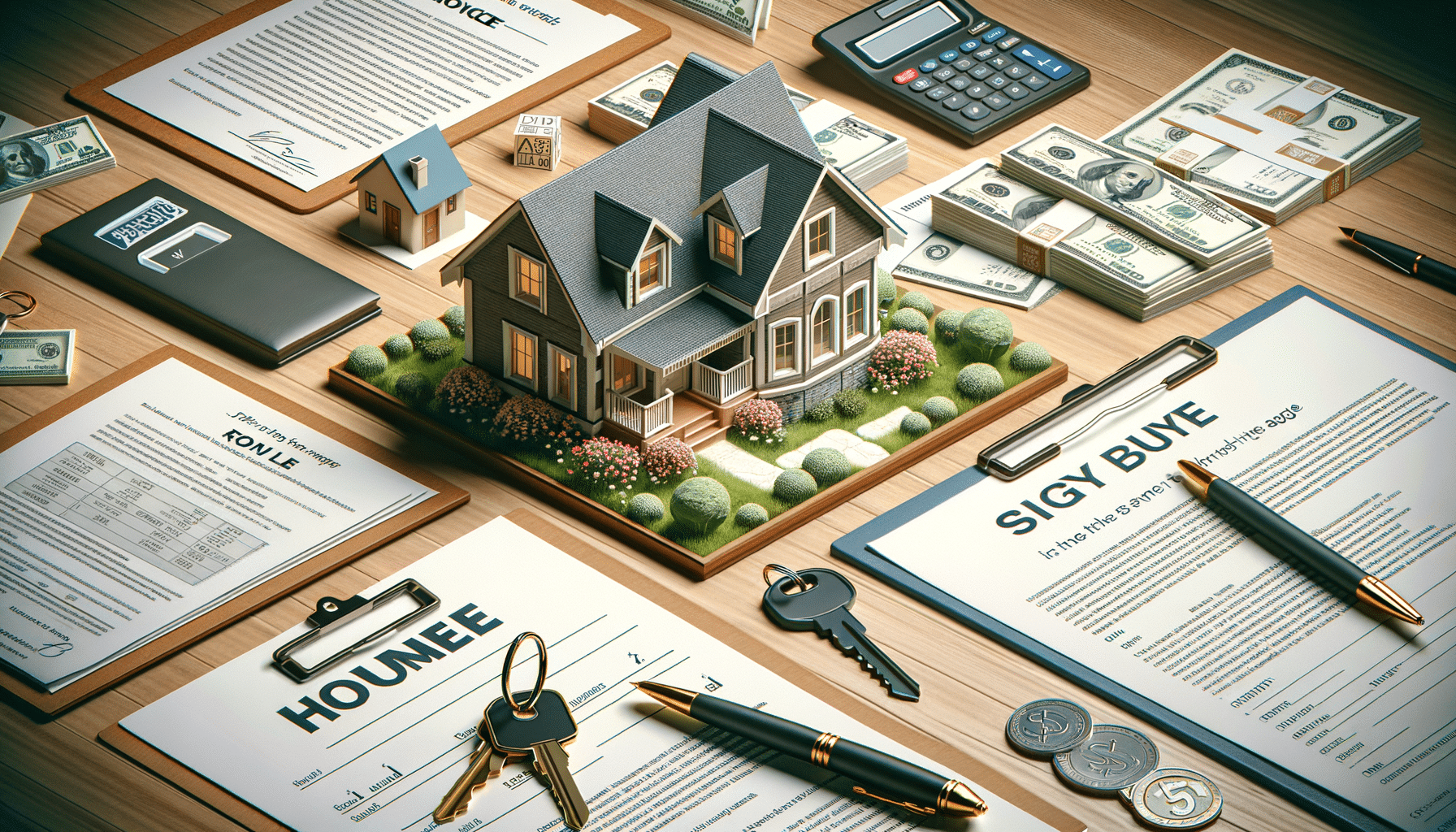Single and Buying Alone: A First-Time Buyer’s Journey
Embarking on the journey of purchasing a home for the first time can be both exhilarating and daunting, especially when doing it solo.

Understanding Your Financial Readiness
Purchasing a home is a significant financial commitment, and understanding your financial readiness is a crucial first step. As a first-time buyer, it’s important to assess your current financial situation comprehensively. Begin by evaluating your savings. A substantial savings account not only provides a down payment but also acts as a cushion for unexpected expenses. Experts often recommend having at least 20% of the home’s price for a down payment to avoid private mortgage insurance (PMI), which can add to your monthly expenses.
Next, consider your credit score. A higher credit score can lead to better mortgage rates, reducing overall costs. Aim for a score of 700 or above to secure favorable terms. If your score needs improvement, focus on paying down debts and making timely payments to boost it over time.
Additionally, calculate your debt-to-income ratio (DTI). Lenders use this metric to assess your ability to manage monthly payments. A DTI below 36% is typically preferred. If your DTI is higher, consider strategies to reduce debt before applying for a mortgage.
- Build savings for down payment and emergency fund
- Check and improve your credit score
- Calculate your debt-to-income ratio
Choosing the Right Type of Mortgage
Selecting a mortgage is more than just finding the lowest interest rate. It’s about choosing the right type of mortgage that fits your financial situation and long-term goals. Fixed-rate mortgages offer stability with consistent monthly payments, making them ideal for those planning to stay in their home long-term. Alternatively, adjustable-rate mortgages (ARMs) might start with lower rates, but they can fluctuate, which might be risky if rates increase significantly in the future.
Consider the loan term as well. A 30-year mortgage offers lower monthly payments, but you’ll pay more in interest over time. A 15-year mortgage, while having higher monthly payments, reduces the total interest paid and allows you to own your home sooner.
For those buying alone, government-backed loans such as FHA loans may be an attractive option due to their lower down payment requirements and more lenient credit score criteria. However, they come with additional insurance costs. Weigh these options carefully to find a mortgage that aligns with your financial capabilities and homeownership timeline.
- Fixed-rate vs. adjustable-rate mortgages
- Loan term considerations
- Government-backed loans for first-time buyers
Finding the Right Home
Once your finances are in order, the next step is finding a home that meets your needs and budget. Start by identifying your priorities. Are you looking for a specific location, such as proximity to work or family? Do you need a certain number of bedrooms or a yard for pets? Make a list of must-haves and nice-to-haves to guide your search.
Utilize online real estate platforms to explore available listings, and consider working with a real estate agent who understands the local market. An agent can provide valuable insights and help you navigate the often complex process of home buying.
Visit potential homes to get a feel for the neighborhood and the property itself. Pay attention to the condition of the home, the layout, and any potential repairs or renovations needed. It’s also wise to research the area’s future development plans, as these can impact property values and your quality of life.
- Identify your home-buying priorities
- Use online tools and real estate agents
- Visit and assess potential homes
Navigating the Offer and Closing Process
After finding the right home, the next step is making an offer. This process can be competitive, especially in popular markets. Work with your real estate agent to determine a fair offer price based on comparable sales in the area. Be prepared for negotiations, and consider including contingencies in your offer to protect your interests, such as inspection or financing contingencies.
Once your offer is accepted, the closing process begins. This involves several steps, including a home inspection, appraisal, and finalizing your mortgage. A home inspection is crucial to uncover any potential issues with the property. If significant problems are found, you may renegotiate the price or request repairs.
The appraisal ensures the home’s value matches the purchase price, which is important for securing your mortgage. Finally, review all closing documents carefully before signing. This includes the loan estimate, closing disclosure, and deed. Once everything is in order, you’ll pay closing costs and officially become a homeowner.
- Work with your agent on offer strategy
- Include contingencies for protection
- Complete inspections and appraisals
Preparing for Homeownership
Becoming a homeowner is an exciting milestone, but it also comes with new responsibilities. Prepare for ongoing costs such as property taxes, homeowners insurance, and maintenance. Create a budget that accounts for these expenses to avoid financial strain.
Consider setting up an emergency fund specifically for home repairs. Homes require regular maintenance, and unexpected repairs can be costly. Having a fund in place ensures you’re prepared for any surprises.
Additionally, familiarize yourself with basic home maintenance tasks. Knowing how to handle minor repairs or when to call a professional can save you time and money. Join local homeowner associations or online communities to connect with other homeowners for advice and support.
- Budget for ongoing homeownership costs
- Establish a home repair emergency fund
- Learn basic home maintenance skills